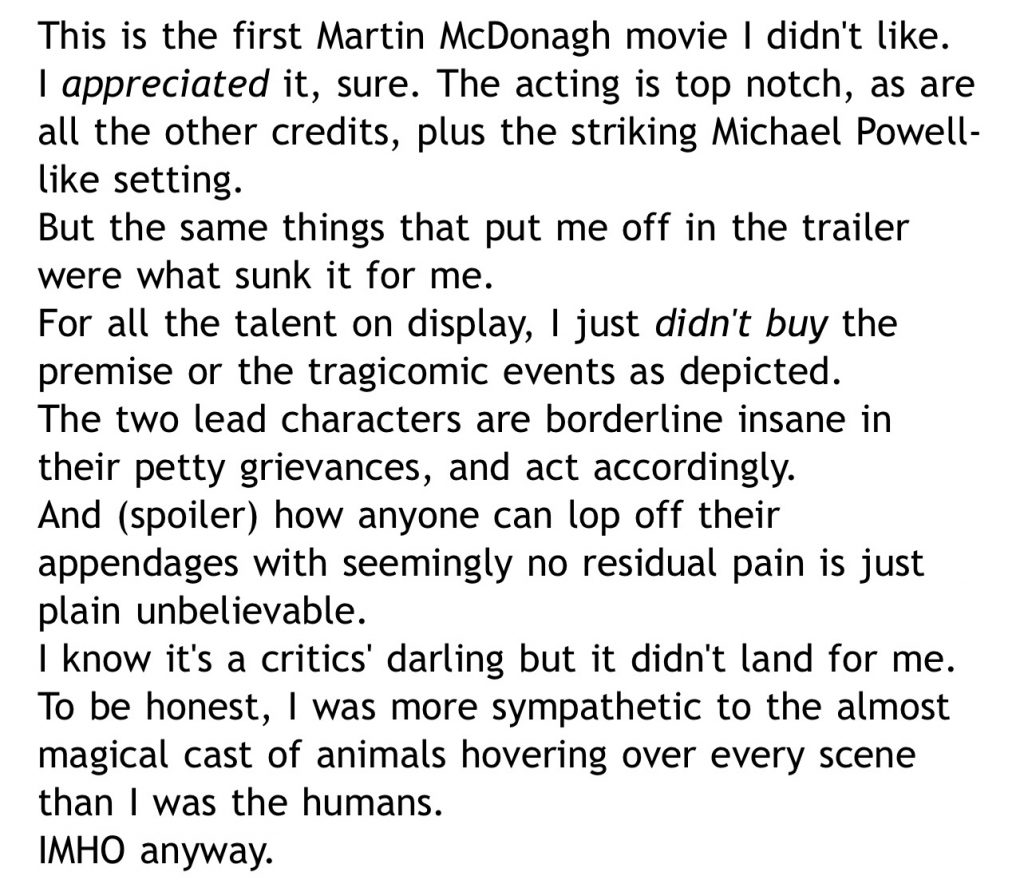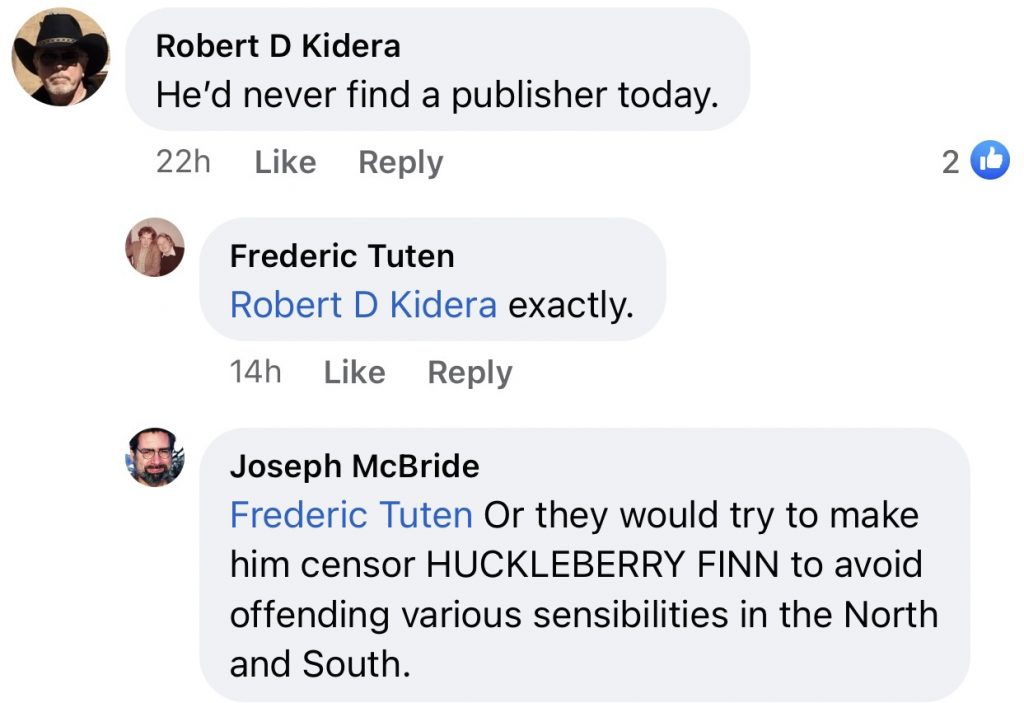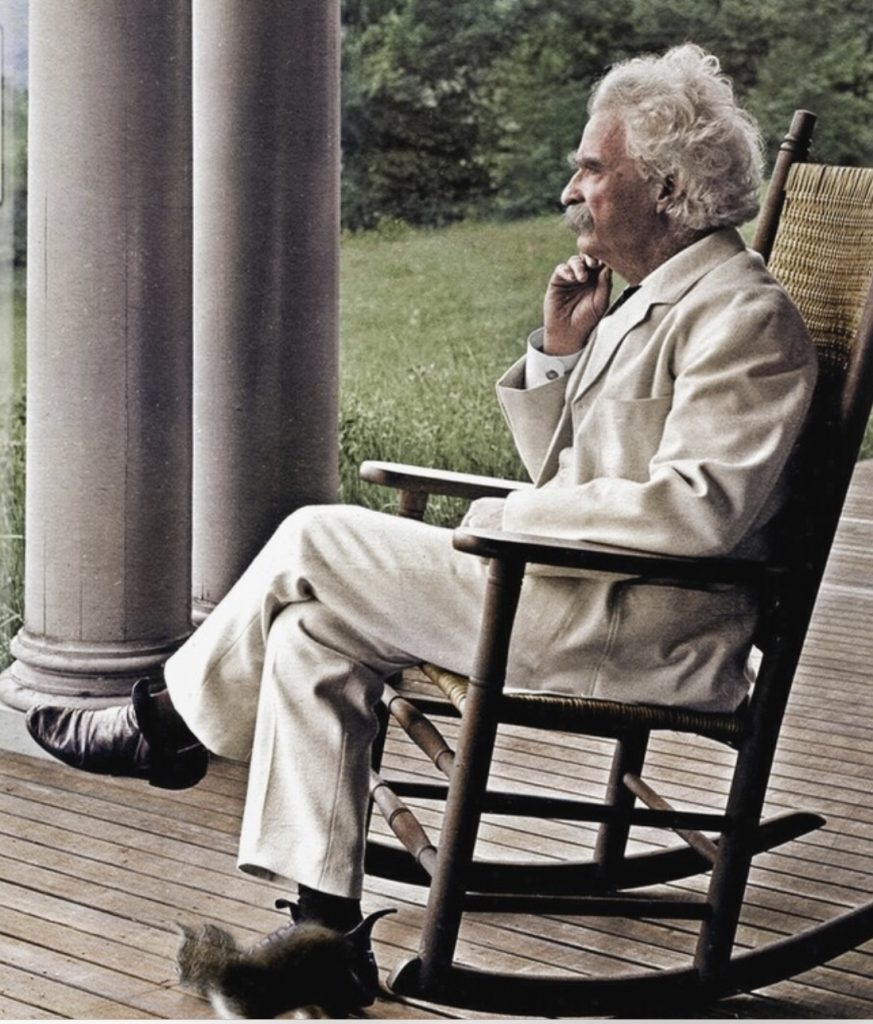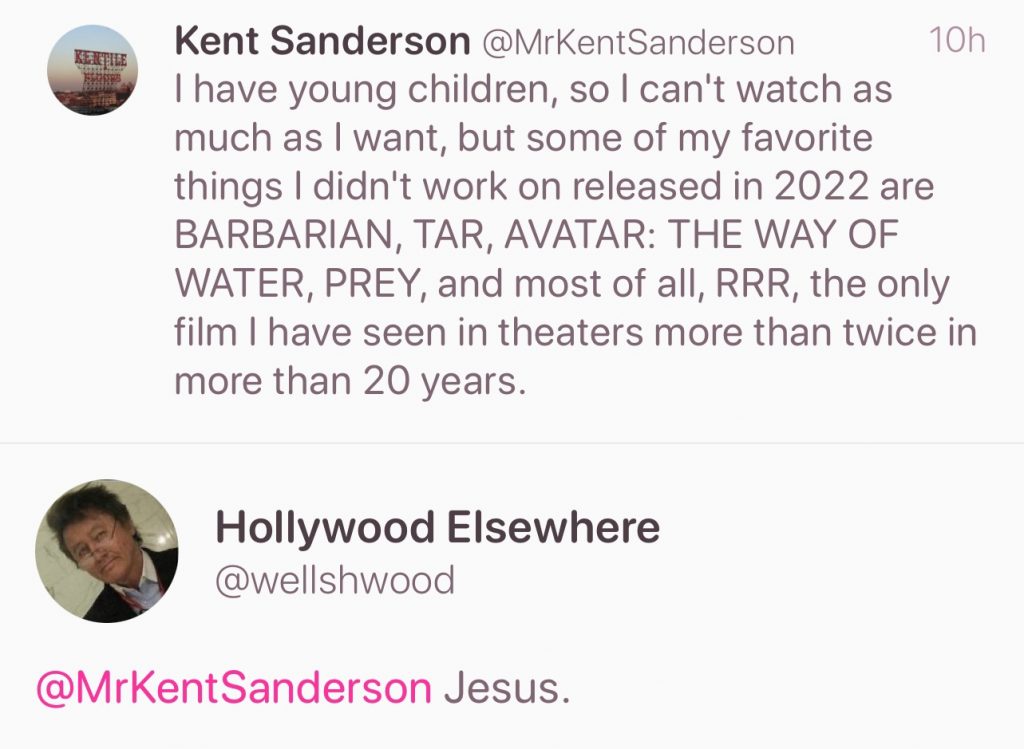
 Jeffrey Wells
Jeffrey Wells
Would 2022 Publishers Be Squeamish About This Guy?
Almost certainly.


“Fabelmans” On The Ropes
HE’s Manwe Sulimo on BAFTA long lists:

West Coast Friendo:

Forthcoming Ensemble Award Trauma
If I could wave a magic wand, the Empire of Light cast — Olivia Colman, Michael Ward, Tanya Moodie, Colin Firth, Toby Jones, Monica Dolan, Tom Brooke, Crystal Clarke — would be a SAG ensemble shoo-in.
And what about the Tar guys? Cate Blanchett, Nina Hoss, Noemie Merlant, Mark Strong, Julian Glover, Sophie Kauer, Zethphan Smith–Gneist?

A Return to Sincerity?
Last night a six–month–old Substack piece called “The Importance of Being Earnest,” penned by Sherman McCoy, was passed along, I blame the whole trend of irony-poisoned, meta-commentary dialogue on the Marvel/D.C. plague as well as Millennials and Zoomers in general. I for one would love it if sincere dialogue and plotting where to make a comeback.
Anyway…



Mildly Embarassing
After two or three days of radio silence about what actually happened to poor Jeremy Renner during that traumatic accident with his Snowcat, Collider’s Ryan O’Rourke has supplied some details.
What happened then? Renner was run over by the truck–sized Snowcat, treds and all, blunt force impact upon one of his legs or his chest or something. Possibly, one suspects, because he failed to secure the vehicle with the emergency brake. Or because the Snowcat had been taken possession of by Christine or HAL 9000.

Which Line Isn’t From “Julius Caesar”?
“The fault, dear Brutus, is not in our stars
but in ourselves, that we are underlings.”
(Cassius, Act 1 Scene 2)
“Would that I find myself in hell with my back broken — a gentler fate than that which confronts me presently.” (Antony, Act 1, Scene 3)
“But for mine own part, it was Greek to me.”
(Casca, Act 1 Scene 2)
“Cowards die many times before their deaths,
The valiant never taste of death but once.”
(Caesar, Act 2 Scene 2)
“Cry havoc and let slip the dogs of war.”
(Antony, Act 3 Scene 1)
“All right, ramblers — let’s get ramblin.” (Cassius, Act 2, scene 2)
Sleeping Mummy
I have an idea for a special photo-driven app or website. For a fair fee I will use your photos to create a funeral home lying-in-state photo. I will dress you in a black suit-and-tie or Pope’s robes. Think about it — nobody ever contemplates their after-death appearance (i.e., how they’ll look when their friends come to pay their respects). Now they can!

“We’re Not Gonna Take This Shit Any More”
The good part of Critical Drinker’s rant (the part that rejoices at the notion of Hollywood Stalinist wokesterism coming to an end) begins at 6:45. Key quote: “2022 will be remembered as the year that the woke Hollywood bubble finally burst.”
Whiskey and Pinball
Over the last 40 years I’ve naturally assumed that The Verdict’s opening-credits scene was shot in some Boston-area bar. I don’t know if this is true or not, but I read this morning it was actually shot in 7A, a NYC East Village bar (109 Avenue A) that closed in 2014. Update / correction: The Verdict bar location is 7B (aka Horseshoe Bar) at the corner of 7th Street and Ave. B. Still open for business.
7B: A History in Motion Pictures from Flight Crash Companion on Vimeo.




